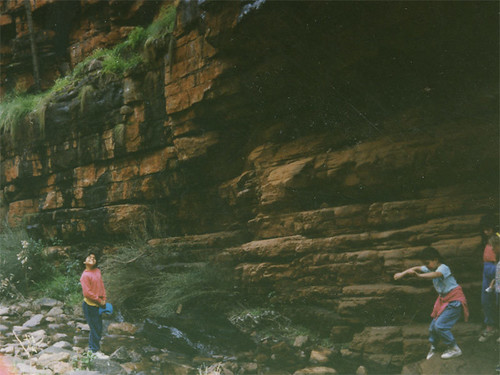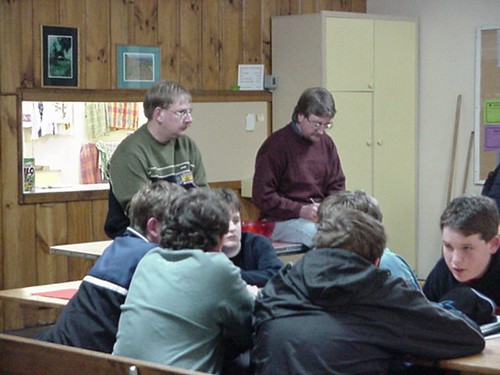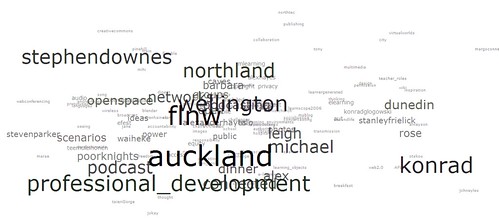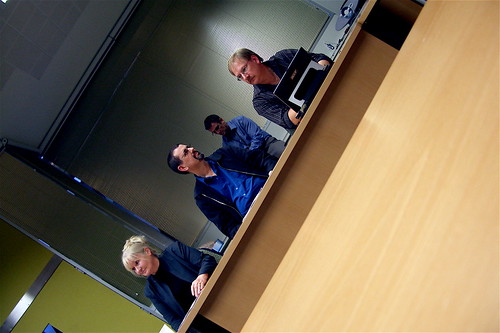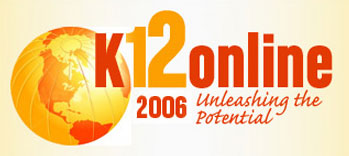Alex, as you have done me the courtesy of addressing me personally in your most recent blog post, I will do the same here as I engage with the challenges and queries that you pose. You are dead right - at no stage in my recent post do I describe what my classrooms look like or detail how learning is structured or constructed or how I interact with my students. I appreciate the fact that you acknowledge that I am seriously endeavouring to be open in my blog here, opening up my practice and ideas potentially for others to ridicule, critique or engage with (hopefully mainly the latter). But is easy for me to hide behind a haze of words, descriptions of what should be as opposed to what is, so shortly I am going to have a go at being insightful and honest. It's easy to have a go at the teaching force in general but that's because to detail the shortcomings that I have seen in some classrooms would be targetting specific individuals that I have encountered on my teaching journey. I don't want to labour that point any more. I'm not perfect, far from it, and there are stacks of educators out there who believe they are doing the best job they can. I don't have the qualifications (who does) to sit in judgement on other people's work especially when my own depth of experience only covers six schools. Enough....
Here's what I want to do. This statement is a good starting point.
...the classroom is merely an architectural edifice within which we contain experience...
You blogged about painting a picture for others of my learners 'classroom' and that's what I'm going to try to do here. It may help anyone who reads this blog to get where I'm coming from.
Ceduna, 1989.
My third year of teaching, Year 5 class on the Far West coast of Souh Australia. Still very young, wet behind the ears, I still remember writing up my weekly program at the desk on the side of the classroom because life outside of work revolved around sport, the pub and traversing vast distances to get to both. Trying to recall the type of classroom I ran is quite difficult now but I do remember buying into a spelling quota system because that's what the strong willed teacher next door with the other Year Five class was doing. There was a strange fine line in the relationships struck up in that classroom as social life and school life crossed over so much. I could be marking a student's work and putting "Well Done" stickers on a well structured piece of creative writing and then standing his older brother in the B grade footy match on the weekend. (Footnote: I was a woeful footballer. Back pocket and bench specialist.) I remember taking the class on an overnight camp to Smoky Bay, 40 kms away and that was something we had planned together as a class. Nothing fancier could be afforded as the district was gripped in a similar drought to the one currently going on. I remember having frank and open conversation with parents at interview night and the utter crushing disappointment when some parents requested that a child be shifted from my class because they felt that I didn't really know what I was doing. It nearly turned into two students except for some fast talking from my then principal. I do recall feeling frequently out of my depth and just shy of drowning but being absolutely wiped out when the position I was filling as a contract was filled by a transferee from the city. I had no chance of staying in this incredibly complex and demanding school with its mix of indigenous students and farming kids wavering between tolerance and prejudice. Looking back though, I remember so many of that class by face, voice and personality. I think that's a good thing.
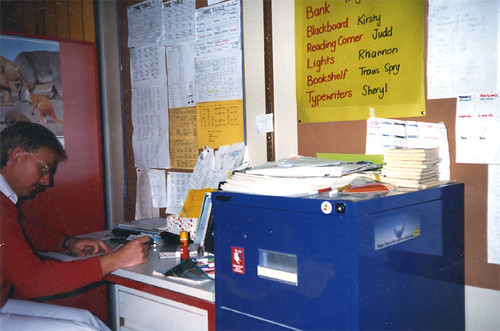
I prepare for my teaching day in my classroom, Ceduna, 1989.
Willsden, 1993.
The Year of Indigenous People saw me with one third of my Year 4/5 class identifying as being Aboriginal at this smallish primary school in Port Augusta. I remember running reward systems where kids who had followed class rules and worked hard ended up for a lunchtime visit to Hungry Jack's at my expense. We explored topical issues in Social Studies - and with my next door team teacher we ran a Conference Writing program where kids created pieces of writing in all forms of genres and as a large group we sat and peer assessed their efforts. "I think that needed more colour." "That really looks like a real menu." "There should be more writing than that for a good writer like you." "I loved the recipe you wrote - was it good to eat in real life?" I think that I was handing the reins over to the kids for the first time in one respect. They had control in this part of the school week - within the structure they could choose how and on what to focus their efforts and did so knowing that the end result would be evaluated just as much by their classmates as their teacher.
1992 camp for Year 3/4's - Willsden Primary School. Some of my class at Alligator Gorge, Flinders Ranges.
Flagstaff Hill, 2001.
How do I try and describe the stuff I tried to do with my class and other students on a school wide basis? I was the push behind a whole new rethink of Student Voice and I worked a lot with our Student Leaders who ran this new system of sub committees and committees - they chaired and minuted meetings, distributed information, brainstormed new ways of improving the flow of decisions and information. My class was part of a double class that had moved into the old library space at the school and we even had a negotiated vision that dictated the sorts of things we did as part of our learning. Computing was still an optional experience for many teachers so my class spent more than their fair share of time in the computer lab creating web page driven CD-ROMs of our camp to Nelson, Victoria and dabbling with Powerpoint as a mode of presenting Resource Based Learning projects back to their peers. I had the kids join up to e-pals and we sent e-mail to a couple of classes in the USA - matching up with the Northern hemisphere school year was always a problem.
Quiz time - Year 6/7 camp to Nelson.
Lockleys North, 2005.
I had this interesting conversation the other week with another teacher who had done a similar thing to me, taking on a coordinator position that necessitated sharing the responsibilities with another teacher. I told her that I thought that I was a better, more creative teacher when I was the full time person in front of the kids. (Make of that what you will.) It has nothing to do with control and everything to do with having dual responsibilities and not having the time to fully develop projects and ideas for learning with the kids themselves. I've found myself falling back into old habits and using old structures because they were time efficient to set up and run. I can start something like exploring the use of mobile phones in the classroom but run out of time to develop their ideas and hook it into the curriculum.
If I wanted to look for a common theme throughout my career, something that I believe defines me as an educator, it would be this. I care about people as individuals. That doesn't mean that I have managed that with every student that has crossed my path - personality, situation, priority all play a role. But I can honestly say that my intention every year has been to get to know every student in my class as a person, find some way to tap into their world and offer myself as a person who happens to be their teacher in return. I tell them about me, my experiences, stories from previous classrooms and listen back to them about their netball games, cousin's weddings, obsession with dinosaurs, their famous relatives and their family tragedies. If you are only in front of kids a couple of days a week, these relationships take longer and are more work to maintain. They need to know that I have their best interests at heart ... that if they suffer from dyslexia, I will give them alternatives to showcase their understanding, if they are loud and exuberant, I will channel that energy into leadership and if they are quiet and unsure, I will quietly encourage from their side and keep praising up their successes and helping to smooth over the bumps. That's where I am as an educator - now in my role, I am challenged to apply these same ideals to dealing with my colleagues.
So, this has ended up being a bit of a history tour and I don't know if I've achieved my aim of revealing what my classroom looks like. Go easy if you decide to comment!!

